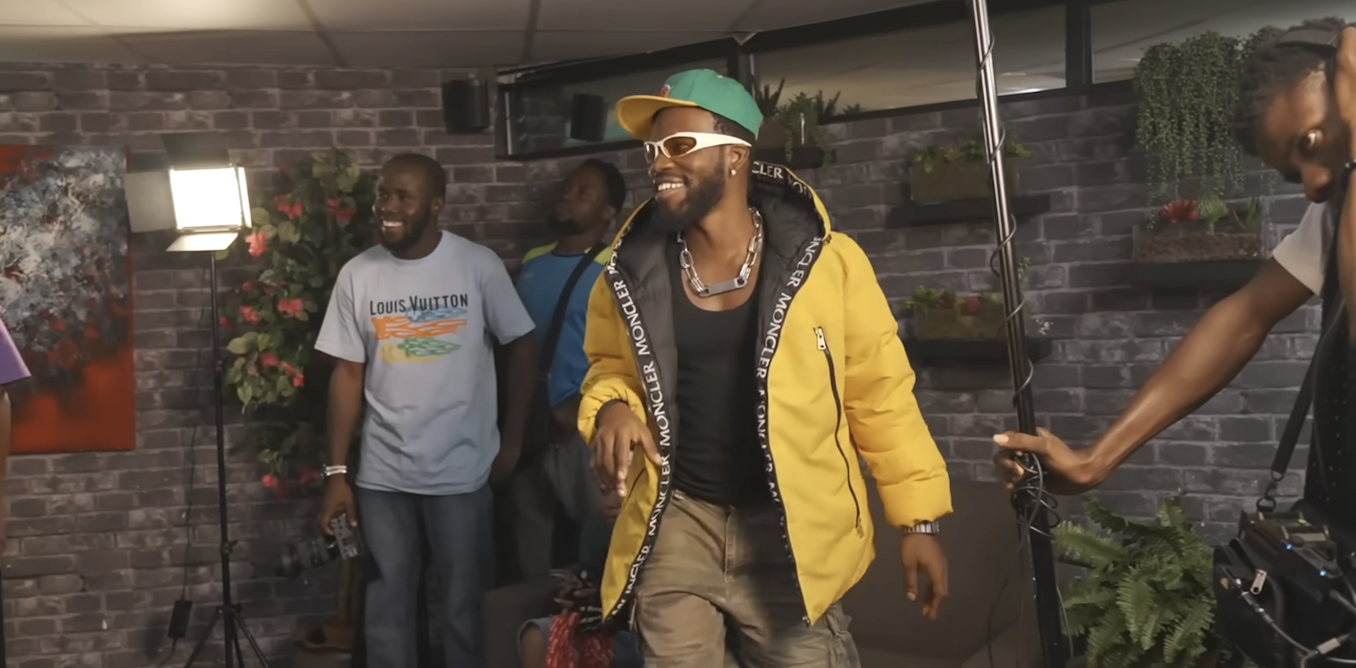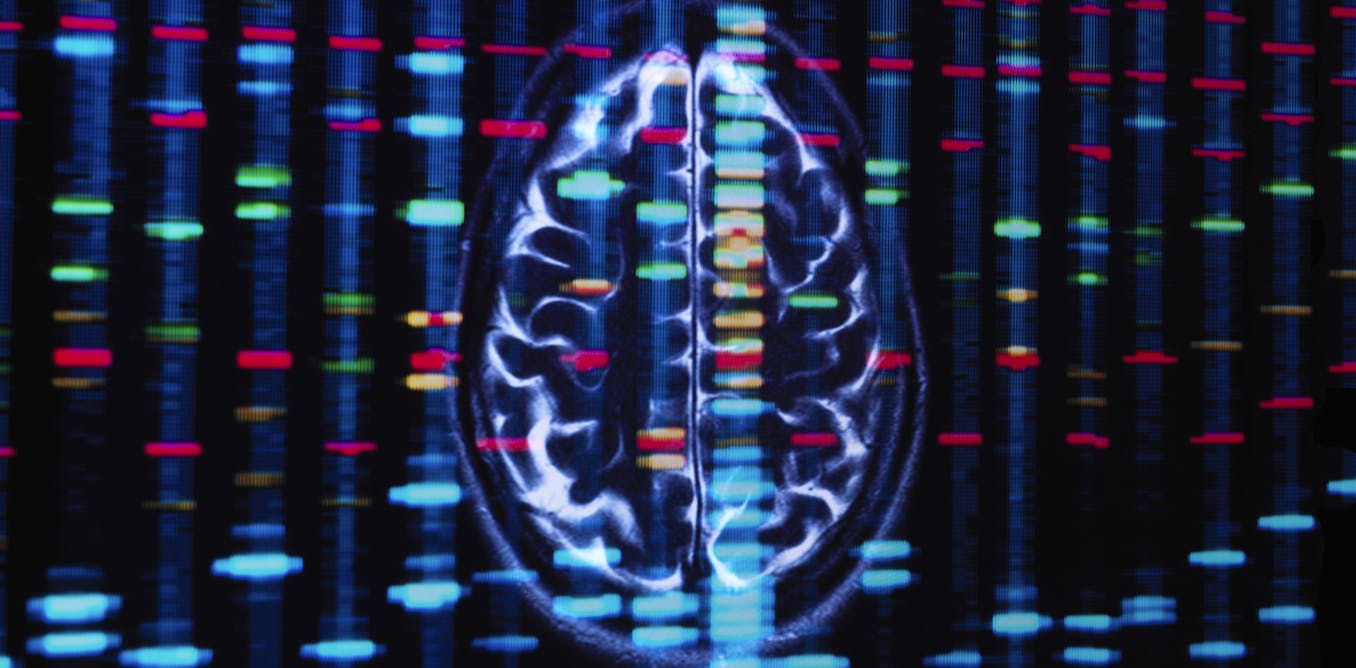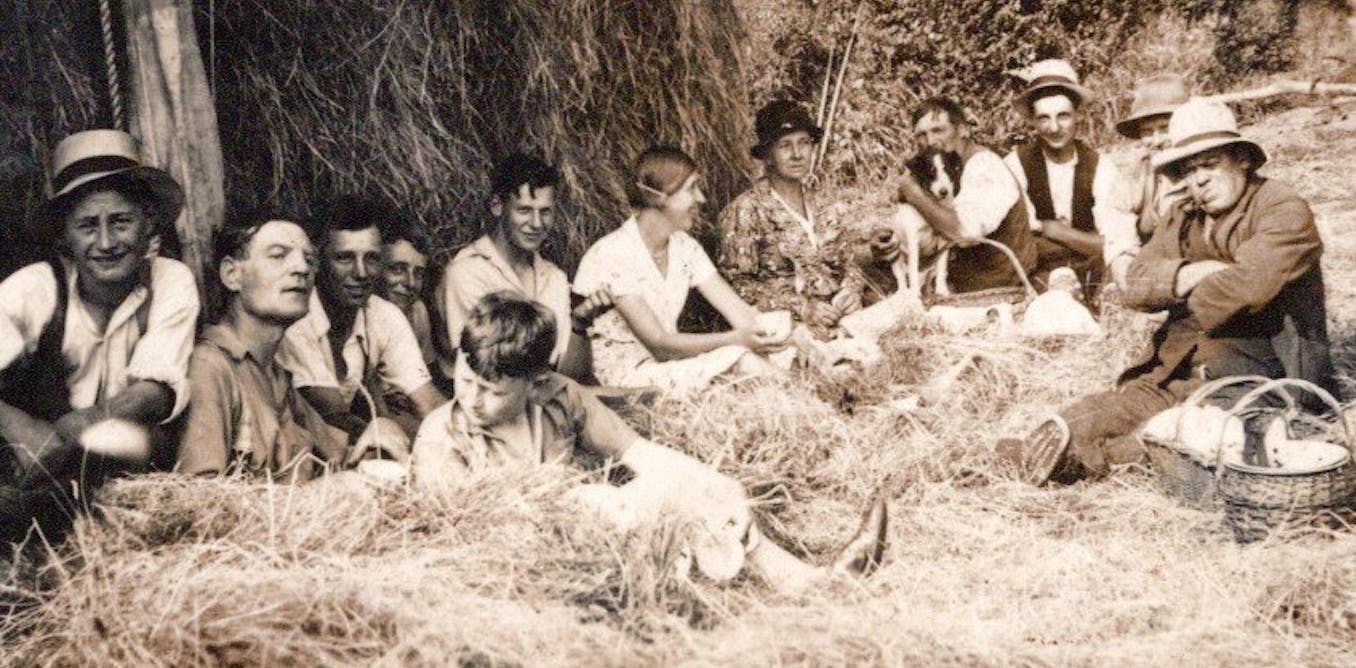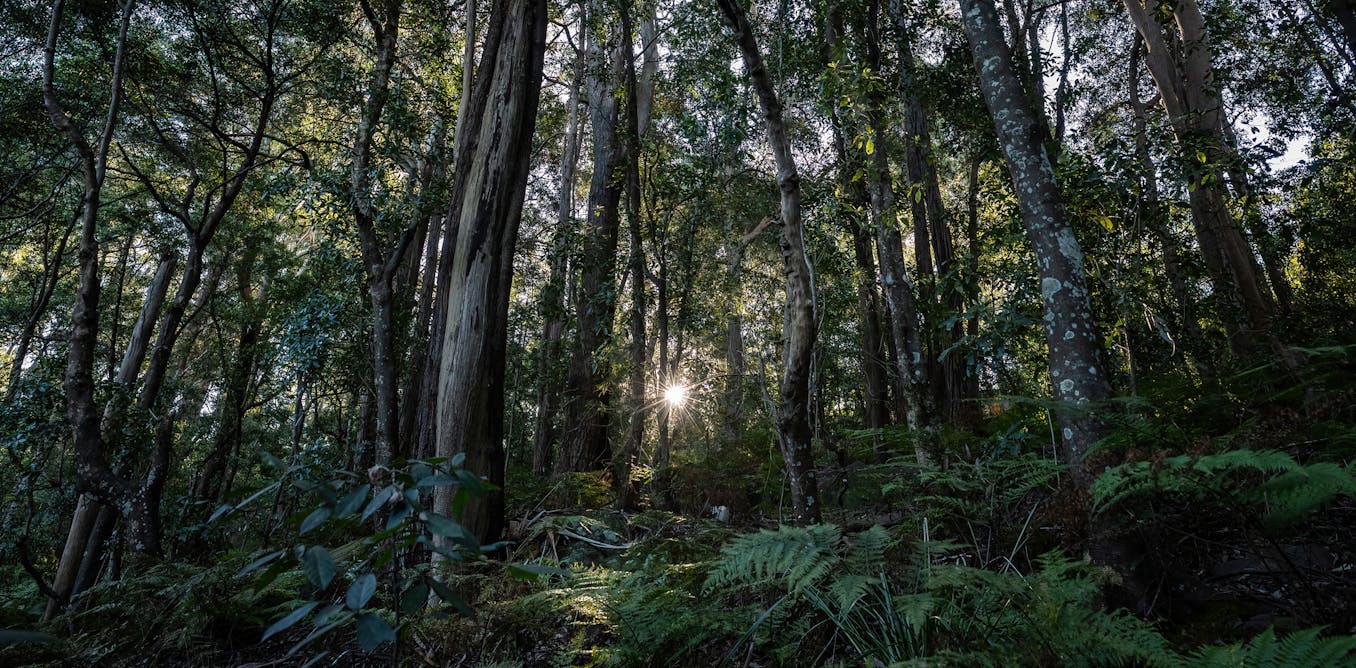The science of randomness, flukes, and fate | Brian Klaas
In “The Science of Randomness, Flukes, and Fate,” political scientist Brian Klaas challenges the comforting notion that everything happens for a reason. Drawing from his upcoming book, Fluke, Klaas argues that while we have significant influence over the world, we possess very little control. This realization can transform our understanding of life and our behavior.
Klaas critiques the cognitive biases that arise when we attempt to stitch together coherent narratives from the chaos of existence. He highlights how this desire for order often leads to misleading conclusions about fate and causality. Events often unfold unpredictably, shaped by randomness and external influences we cannot foresee.
Using compelling examples, including a life-saving soccer ball and the global impact of the pandemic, Klaas illustrates the interconnectedness of our lives. He emphasizes that, while we may feel like the protagonists of our stories, recognizing the role of chance can empower us to accept our limitations. By confronting the complexity and unpredictability of life, we can cultivate a more meaningful existence.
Ultimately, Klaas’ message is clear: embracing randomness may seem daunting, but it offers us a more profound appreciation of the intricate web of influences that shape our realities. Explore these thought-provoking ideas in Klaas’s insightful discourse.
Watch the video by Big Think
Author Video Description
“When you start to accept that you have profound influence on the world, but very limited control, you start to see the world differently.”
Subscribe to Big Think on YouTube ► https://www.youtube.com/channel/UCvQECJukTDE2i6aCoMnS-Vg?sub_confirmation=1
Up next, We control nothing, but we influence everything | Brian Klaas: Full Interview ► https://www.youtube.com/watch?v=Jtn2Wxai-ug
We like to believe that everything happens for a reason. But what if that belief is a comforting illusion? Political scientist Brian Klaas argues that randomness, not reason, drives much of human life.
The stories we tell ourselves about cause and effect aren’t reflections of truth, rather, they’re coping mechanisms to make chaos feel like order.
0:00 The limits of control
0:30 Does everything happen for a reason?
1:58 Science and chaos
2:27 Religion and the scientific revolution
4:23 Making sense of patterns
6:56 “The delusion of individualism”
Read the video transcript ► https://bigthink.com/series/the-big-think-interview/myth-of-fate?utm_source=youtube&utm_medium=video&utm_campaign=youtube_description
———————————————————————————-
Go Deeper with Big Think:
►Become a Big Think Member
Get exclusive access to full interviews, early access to new releases, Big Think merch and more. https://members.bigthink.com/?utm_source=youtube&utm_medium=video&utm_campaign=youtube_description
►Get Big Think+ for Business
Guide, inspire and accelerate leaders at all levels of your company with the biggest minds in business. https://bigthink.com/plus/great-leaders-think-big/?utm_source=youtube&utm_medium=video&utm_campaign=youtube_description
———————————————————————————-
About Brian Klaas:
Dr. Brian Klaas is an Associate Professor in Global Politics at University College London, an affiliate researcher at the University of Oxford, and a contributing writer for The Atlantic. He is also the author five books, including Fluke: Chance, Chaos, and Why Everything We Do Matters (2024) and Corruptible: Who Gets Power and How It Changes Us (2021). Klaas writes the popular The Garden of Forking Paths Substack and created the award-winning Power Corrupts podcast, which has been downloaded roughly three million times.
Klaas is an expert on democracy, authoritarianism, American politics, political violence, elections, and the nature of power. Additionally, his research interests include contingency, chaos theory, evolutionary biology, the philosophy of science and social science, and complex systems. In addition to Fluke and Corruptible, Klaas authored three earlier books: The Despot’s Apprentice: Donald Trump’s Attack on Democracy (Hurst & Co, 2017); The Despot’s Accomplice: How the West is Aiding & Abetting the Decline of Democracy, (Oxford University Press, 2016) and How to Rig an Election (Yale University Press, co-authored with Professor Nic Cheeseman; 2018).
About Big Think
Big Think is the leading source of expert-driven, actionable, educational content — with thousands of videos, featuring experts ranging from Bill Clinton to Bill Nye, we help you get smarter, faster. Get actionable lessons from the world’s greatest thinkers & doers. Our experts are either disrupting or leading their respective fields.
Video “The science of randomness, flukes, and fate | Brian Klaas” was uploaded on 11/06/2025 to Youtube Channel Big Think




































😮
So, science is now explaining what Taoists and Buddhist preached thousand of years ago. Also, this guy's speech is superb. Love it.
Chaos theory and butterfly effect comes to mind wile watching this along with paradolia.- Edit- 6:55 I knew it. You could tell in the first few seconds what he was getting at
Free will is an illusion. We are not in control. Determinism is more real than the human mind would like to consider. This can also be called luck, fate or destiny. (This leads some people to a deity as responsible, but this is wrong). Also, we operate our lives like we are in control and with consequences, as we should.
Compatibilism is my position. I think life is like poker: 85% luck, and 15% skill that determines the outcome. We use the 15% to influence a winning outcome.
Oh this is depressing.
To think I will end my life knowing everything was random chaos and that life was just a storm that tossed me around and finally kills me.
If you go believing you have control over a little to nothing. That everything will control you and you are just to suffer in the randomness and hope you survive, that’s a recipe for pain.
I explain the randomness of life with the quote "the universe conspires"
As soon as you accept fate or predestination, you might as well accept all superstitions. We may have limits on what we control, but we are not helpless.
Ultimately all spiritual doctrines (religions and philosophies) come to a conclusion there is no matter what is happen with the human being but how he/she react on it. And the reaction might be depending on our emotional and cognitive intelligence or any kind of indoctrination.
People who have what's called "internal locus of control" are healthier, live longer, earn more than people who accept what Prof. Klaas advocates, i.e. that what happens to us is random. That doesn't mean what he's saying is false, but he should confront the negative implications of his recommendation.
These things were set in motion long ago. 😂😉
I’d like to see this guy talk to Bobby Azarian about what’s possible and what we should aim for.
That soccer ball story is on some reverse final destination sh*t
This is very thoughtful. It got me to considering schizophrenia, where as I understand it, the brain’s ability to filter irrelevant noise is compromised, leading to both hallucinations and delusions (correct me if I’m wrong on this).
The other thing that occurred to me is the phenomenon of near-death and other such powerful experiences. In these, the experience frequently involves a feeling of a total loss of control, and yet a profound sense of being loved and connected with everything (I felt that during mine). Afterward, the experiencer often feels much less of a need to try and control the world around them.
Destiny might be a myth, but predestination is not. Predestination works on the understanding that God knows the beginning from the end, and although restricted by free will, he does attempt to influence a person's thinking, decisions, and behaviours for the good. However, the final decision to do a thing or not to do a thing is ultimately the individual's responsibility.
Very well done Video, got me thinking about the topic
Always had a hunch that most things in life come down to "luck" or "misfortune". Glad to have it backed by science now, too
As with another comment, one thing that fascinates me is how what is being spoken about today has been said 1000's of years a go. It is almost like we have not made such progress regarding our minds. Pretty crazy when you think about it….
do not fear my toothless pet sabre-toothed tiger.
We are self-determining beings. Putting a sane person in a facility like this is a fucking lie
But all these
Determimsm
Arise
From very random quantum fluctuations
And i think ur wrong
Bcz in this information universe
Every thing is just a configuration of universe
So according to infote apple black box hypothesis
If i lock u in a box for infity
U would lately degrade
And molecules re arrnage
Infintly
A phone or dragon
And u back again
In infinite time
And
Free will
Its complex
😅
Its really a mystery
Brilliant
So the edge is in the noise huh
What is a succerball???
This is bs
This is deep, love it
I believe it's all probability
Everything happened to me are results of what I did in prior actions.
Everything has paths of cause and effects.
Seems like he's conflating a couple ideas. First, the difference between influence and the illusion of influence. We feel as though we have, or ought to have influence because we experience ourselves as autonomous (or semi-autonomous) agents embedded in a non-agential, non-autonomous world. We do influence things, but in no greater or more special sense than other natural phenomena influence other natural phenomena, because we ourselves are natural phenomena. He doesn't explicitly mention freewill in his explanation, but given his reasoning here, it seems safe to infer he thinks we have freewill in the sense most people conceive of it (which I think is wrong).
Second; In chaos theory, he conflates a system being extremely complex with a necessity for randomness to play some vital role in this complexity. Despite a system's complexity rendering it unpredictable, it does not render it fundamentally nondeterministic. All events emerge out of a previous set of conditions. The incomprehensible complexity of this previous condition does not mean the succeeding set of conditions is divorced from its predecessor.
This all seems to be alluding to the idea that the future is not fixed and is influenceable, or subject to change based on how we choose to act in the present. As far as I understand, the general consensus in physics circles is that the distinction between the past, present, and future is an illusion emerging from our limited perspective. If that's the case, it follows that our ideas surrounding our capacity to influence the future is also an illusion.
Woah…I literally just learned the word apophenia the other day and now this video pops up on my subscription. Would that be synchronicity though? They're certainly related, but I'm having trouble differentiating between the two concepts.
Brilliant topic
Ok, but we’re not considering what precedes “luck” or so-called flukes. What science is measuring is the veil, not what is under it. Don’t substitute this for the metaphysical truth.
Youtube algorithms be like : 'Now, it's about time to think and argue about freewill. Response… humans… response….'
just started reading homestuck so this helps thx
The powerlaw tail signal arrives from the noise in the normal distribution and becomes the new normal distrubution – over time
Deft.
The universe’s causal chain may look chaotic. In truth it is synchronized chaos. It is inconsistent to invoke cause and effect to argue we reshape the future while refusing to say that everything happens for a reason. Every effect has a prior cause.
I feel for Brian. He seems to believe only in what’s immediately measurable, missing a crucial part of the human mind: the imaginative faculties that shape how we experience and even influence reality.
Causes have effects; effects have causes.
Full stop …